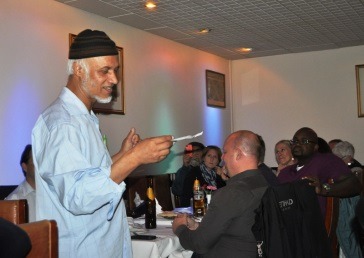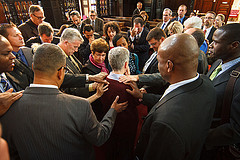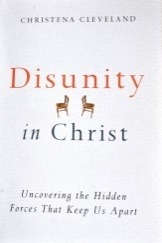LONDON EXPERIENCE … LOOKING BACK – MOVING AHEAD!
Living in anticipation – an introduction to the London Experience
After months of anticipation the moment of the London advance had arrived. It began over ten months before the moment. During the enrollment process I was constantly intrigued by the prospect of a course of study that promised learning opportunities with a global perspective. George Fox Evangelical Seminary (GFES) touted “real world experiences … global venues … world Christian leaders” with the promise of exploring “ministry leadership at the intersection of the global and local church.”[1] Sounded exciting! Add to that the blog testimony provided by the admissions councilor of a graduate, Anderson Campbell, stating the course purpose as “crafting reflective practitioners”[2] The perception is a learning environment where truth, faith, and life intersect. It is understanding scripture in the cultural context of then and now while reflecting and thinking about theology by being invited to do theology.[3] The only remaining question, “How does the course go global?”
Perusing the website revealed that the program of study involved an annual learning experience in various regions of the world. The fall term, 2013, promised an unbelievable experience in London, England. London! I had never been to London!

From that moment, all of the momentum became riveted toward the moment of the London advance! According to the web page, my spouse could join me on the London adventure. All I had to do was “sign-up!”
Experiencing London
The cultural experience: London provided a diverse culture as expressed through language, clothing, and food. I encountered diverse cultures on every street, on public transportation, while taking a walk through one of the parks, in the eating houses, or visiting the shops that lined the streets. We were served in a fast food restaurant by an immigrant from Spain; an attendant from mainland Europe helped in the purchase of my favorite souvenir, a coffee cup and coaster that was made in London.

One of our finest meals was at an Indian restaurant where the manager displayed an exuberant disposition and seemed to take great pleasure in serving us. Each day the hotel prepared a “German breakfast” for us, although the meal was monotonously the same, it was something that was interestingly different. From my perspective, London is a cultural “melting pot” and I enjoyed every moment.

There are various elements of the London experience that standout for me. I hail from a small Midwestern town. In acknowledging this, I am exposing my own reflectivity in interpreting London culture.[4] I never experienced a ride on any underground transportation system. When the “subway” makes the news where I live, which was my only connection to the sub-way, it usually leaves a lasting negative impression. The Tube, as it is called, was a unique experience. The first time a train powered its way through a station, I stood with my back against the wall.

I marveled at the simplicity and speed of getting around London on the tube. You can see some of the elements that gave sensual depth to my experiencehere.
The elements engendered a sense of cultural taste that solidified and validated my experience. The presence of the mundane and menial objects of everyday culture in London became the content that distinguished my encounter, as characterized by Sarah Pink in Doing Sensory Ethnography, from “mere experience” into “an experience.”[5] The red phone booth (unheard of at home), the double decker bus, and the London taxi all created a unique sense of culture. Enhancing the moment was the opportunity to visit really cultural places, like Buckingham Palace, Westminster Abby, Lloyd’s of London, and the Princess Diana memorial, which brought significant fulfillment to my cultural moment.
The cohort experience: I believe our inclusion in the cohort brought into focus our individual and diverse areas of study as part of a whole; a greater learning process that unites us through meaning and purpose. The group experience gives deeper and richer dimension to our individual identities and will continue to define us in the future. Our course of study is leadership with global perspectives; it is the diversity in the cohort members and leaders that brings the perspective. Bruce Avolio in “Pursuing Authentic Leadership Development” indicates that it is the group experience that helps to form identity and project the future.[6] The temporal nature of our time together as a cohort facilitates the generation of “novel self-conceptions” that, from a leadership development perspective, creates a new and better understanding of who we are (individually), what we want to accomplish, and how we can get there. In fact, our cohort presents an application of Avolio’s togetherness/separation leadership theory. He states,
Leadership programs designed to reproduce these sorts of dynamics by creating projects that separate participants from their home organizations as they immerse them in a new peer community might provide an interesting laboratory to further explore the uses and dynamics of separation.[7]
It is difficult to over-estimate the cultural and social value of being together as a group/team at the London advance. You can see some of the group experiences here.
The learning experience
I did enjoy the cultural nuances of the London visit; however, the crux of the London moment centered in the learning opportunities. I will summarize several learning opportunities that impacted me. The learning process was enhanced by the opportunity to ask questions, meet the presenters or speakers, share in small group discussions and make connections that have continued after returning home.
St. Margaret Lothbury, Rev. Jeremy Crossley: The highest spiritual moment of the London experience occurred in the sanctuary of St. Margaret Lothbury cathedral. As Pastor Jeremy quietly spoke of the busy pastoral life that he lives, there was a sense of comfort and peace that can only come from one who is confident and settled in his calling to serve others. He told stories of encountering people in the shops or on the street corner as he hurriedly traversed to some civil or religious responsibility – always he was willing to take time to listen and to speak a word of encouragement. The high spiritual moment came when we entered the sanctuary. There was a sense of awe and wonderment at the hallowedness for what occurred in that space – God, pastor and those seeking peace and reconciliation.

We gathered around Pastor Jeremy and “laid on hands,” a biblical expression that signifies unity and oneness in both ministry and need, praying for our brother in Christ for strength and wisdom to fulfill God’s high calling in his life.
Anthony Elliott in “Contemporary Social Theory: An Introduction,” tells the story of a contemporary “26-year-old fashion designer” whose work responsibilities and social connections reflect “the changing direction of society” and “the changes occurring within social and economic life today … on a global scale.” For Elliott’s portrait, much like the people in Pastor Jeremy’s parish, “Time is a resource … in short supply.”[8] Pastor Jeremy expressed the mobility of his parishioners resulting from the economic uncertainty and the societal and cultural changes. He sees his role as pastor to be there when people need to talk or pray. His parish exists “to serve those who work in the Square Mile [center of London]; to be on hand to pray with and for them, to provide a place for reflection and prayer, and to hold services which are sensitive to the time constraints and pressures of those who work in the City.”[9]
The church in today’s world can minister across cultural divides to those in the local community. The St Margaret Lothbury congregation and Pastor Jeremy provide a ministry and worship practice that meets the needs of their people. It is a challenge for me to do the same. Applying the practice requires an understanding of local community culture and being willing to change the style and time of worship. For Pastor Jeremy, it meant an eight minute worship experience and going out of the building and serving people where they live.
Fresh Expressions: The phrase “fresh expressions” inherently creates interest and fosters a sense of possibility for something new and refreshing. Dr. / Rev. David Male introduced the cohort to Fresh Expressions as a movement that began in England around 2002 and was embraced by most churches in the UK but primarily advocated by the Church of England and the UK Methodist Church. The movement is defined by Michael Moynagh in Church for Every Context as “a form of church for our changing culture established primarily for the benefit of people who are not yet members of any church.”[10] The key practice concepts include “a form of church” and to “proclaim afresh.” The movement has had a diversity of application with over 1,455 fresh expressions reported over the past decade by the UK Methodist Church alone.[11] I believe there is great potential for the application of “Fresh Expressions” in congregation in North America. The loosely knit movement has taken root throughout the Global North. Why not here in Ohio?
Center for Pioneer Learning (CPL): The Fresh Expressions movement brought into focus the need for imaginative and creative leaders who would risk going to the unchurched with “new forms” of church. Church in a post-Christian era will look different and be led by visionary pioneering leaders. The CPL, which began in 2010, resources and supports this new kind of leadership.[12] The center has developed a pioneering spectrum that recognizes the biblical theology of leadership based on Hebrews 2:10 and 12:2, “Looking to Jesus the pioneer and perfecter of our faith” (NRSV, emphasis mine). A pioneer leader is to be first, at the front (ἀρχηγός), as the one with “the idea of the source or originating cause.”[13]
I have already downloaded resource material (see appendix) and expect the practices at CPL to have continuing application in ministry in my context. The practices of Fresh Expressions and the Pioneer Learning resources have virtually unlimited potential and application.
Embodied Leadership and Power: MaryKate Morse stated that we cannot separate our mind and body; the words that proceed from our thought processes are expressed through the bodily space that we occupy. She indicated that leaders should be aware that people will not remember what we say or do but they will remember how we made them feel. There is an interesting and timely distinction between the visual and the visceral markers of leadership.
I noted that in her presentation, MaryKate portrayed leadership as power or influence and when given power as a result of “culture,” the immediate responsibility is to use it in hospitality. She addresses these issues in her book, Making Room for Leadership. The visual markers of leadership are the goals, vision statements, and the project or process outcomes. The visceral markers or “true leadership” however, “happens between the lines, in the interpersonal relational processes.”[14] Leadership is conferred by the group and it is expressed as “physical and social process” by the way one occupies the space that is shared with the group. The space granted by group members represents power.[15] Learning how to occupy my space is an ongoing practical application of embodied leadership.
Leadership is an occupation: Martyn Percy delivered a thoughtful, excellent lecture on leadership. He presented a basic question worth considering: “What is a minister? What does a minister do and how do they live?” According to Martyn, ministry is above all, leadership. A minister perceives of leadership as an occupation; as such, the leader has two occupations – occupied with God and with people. A key learning moment was reflecting on my own ministry; Martyn encouraged us to ask, “Am I occupied with the things God is occupied with? Is it even possible?”
If leadership is being occupied with the things of God, it must be grounded in generosity and grace. The leader must seek the gift of wisdom which is always forward looking. Leadership is an on-going, forward-moving occupation. Martyn gave the challenge to seek and practice the seven virtues of ministry life which parallel the sevenfold gifts of the Spirit: attentive love, hope, humility, truthfulness, compassion, delighting in God/others and integrity undergirded with prayer.
Theology, scripture, culture and social bias– sexual orientation and gender equality: There was significant discussion concerning Christian leadership in the present socio/political and philosophical cultural context. My intention here is not to state a position but rather, to acknowledge the openness to discuss and dialogue on these “hot-button” issues during the London advance. There are many factors including interpretation, diversity, plurality, individual and group narrative, and the place/role of metanarrative that all factor into any dialogue concerning the good news as contextualized in the local cultures of World Christianity. The discussion at the advance was open and honest. Perhaps it was a group sense of love, openness and acceptance that made all the members feel empowered. In our group context there was a freedom for expression, everyone was given voice, or as MaryKate said, “Space.” I suggest, for myself and all cohort members, that we review the presentations by our peers and faculty members as these topics will continue to impact us in our belief, practice, ministry, and leadership. The appendix includes Steve Chalke’s A Matter of Integrity, an open dialogue on homosexuality and same sex marriage.

In my own reading, I have received help from Christena Cleveland’s book, Disunity in Christ. She advocates that one of the biggest barriers to unity and holiness in diversity is the allegiance we give to sub-groups.[16] Recall I said earlier that we develop much of our identity through our group associations. According to Cleveland, we assume sub-group identities that are important. Sub-group identities, however, often generate conflict and prevent us from achieving the higher group identity as the Body of Christ (the church). The greatest unity comes from our common identity in Christ.[17] Discovering and removing the barriers to unity and holiness while experiencing our supreme identity in Christ is an ongoing practice.
Summary
I have left unmentioned a host of presentations by faculty members and members of DMin-lgp3. These presentations also presented areas of new knowledge and expanded research opportunities. The question is, “Where do I go from here?” I started this post by emphasizing the significance of the Moment! I felt this way because I was not only looking back – but looking forward. I would have difficulty placing a value on the London Experience; truly it was the moment. HOW GREAT WAS IT?: Meeting GFES staff for the first time and participating in their presentations; making a real connection to cohort partners beyond the one dimensional photos and sometimes “eerie” blog titles/names; linking to Global Leaders and learning how they are doing ministry; I would not characterize it as the “pearl of great price,” however, you might recall the old credit card commercial: “A PRICELESS MOMENT!”
Appendix: (Contact Information)
Chalke, Steve, Pastor, “Oasis Church” http://www.oasisuk.org/; Facebook, https://www.facebook.com/oasisuk; Twitter, https://twitter.com/SteveChalke; The Bible and Homosexuality: http://www.christianitymagazine.co.uk/sexuality.aspx; “A Matter of Integrity,” http://www.oasisuk.org/inclusionresources/Articles
Crossley, Rev/Pastor Jeremy: St. Margret Lothbury, http://stml.org.uk/; Blog http://stmargaretsloth.wordpress.com/ Twitter, https://twitter.com/StMargaretsLoth
Kandiah, Krish: “Evangelical Alliance” http://www.eauk.org/,
Facebook, https://www.facebook.com/evangelicalalliance
—- “Home for Good” http://www.homeforgood.org.uk/
Male, David: “Center for Pioneer learning” http://www.centreforpioneerlearning.org.uk/; Facebook, https://www.facebook.com/groups/centreforpioneerlearning/,
Conference materials and resources: http://www.centreforpioneerlearning.org.uk/conference-resources/
—- “Fresh Expressions” http://www.freshexpressions.org.uk/home; Facebook, https://www.facebook.com/freshexpression;
Percy, Martyn: Blog-spot, http://martynpercy.blogspot.com/, Twitter, https://twitter.com/MartynPercy, Books, Engaging with Contemporary Culture. (Burlington: Ashgate Publishing, 2005), Kindle. Shaping the Church (Burlington: Ashgate Publishing, 2010). Evaluating Fresh Expressions: Explorations in Emerging Church (Norwich: Canterbury Press, 2009)
[1] George Fox Evangelical Seminary, “Leadership and Global Perspectives,” George Fox University, First accessed December, 2012, http://www.georgefox.edu/seminary/programs/dmin-lgp/index.html.
[2] Anderson Campbell, “35 for 35 – DMINLGP,” The Crooked Mouth, December 6, 2012, accessed November 10, 2013, http://thecrookedmouth.com/35-for-35-dminlgp/.
[3] See for more development of this thought, David F. Ford, Theology: A Very Short Introduction, (New York: Oxford University Press, 1999), chapter 1.
[4] Sarah Pink, Doing Visual Ethnography (London: Sage Publications, 2007), 471, Kindle.
[5] Sarah Pink, Doing Sensory Ethnography (London: Sage Publications, 2009), 24, Kindle.
[6] Bruce J. Avolio, “Pursuing Authentic Leadership Development,” in Handbook of Leadership Theory and Practice, ed. Nitin Nohria, Rakesh Khurana (Boston: Harvard Business Press, 2010), 8166, Kindle.
[7] Ibid, 8203-8204.
[8] Anthony Elliott, Contemporary Social; Theory: An Introduction (London: Routledge, 2009), 1-2.
[9] See the website “St Margaret Lothbury,” accessed November 20, 2013, http://stml.org.uk/
[10] Michael Moynagh, Church for Every Context: An Introduction to Theology and Practice (London: SCM Press, 2012), 166, Kindle.
[11] David Male, “Developing Pioneering Leaders for a New Missionary Context” (GFES London Advance, September 28, 2013).
[12] For more details see website http://www.centreforpioneerlearning.org.uk/, accessed November 1, 2013.
[13] James Strong, The New Strong’s Expanded Exhaustive Concordance of the Bible: Greek Dictionary (Nashville: Thomas Nelson, 2010), 43.
[14] MaryKate Morse, Making Room for Leadership: Power, Space and Influence (Downers Grove: InterVarsity Press, 2008), 161, Kindle.
[15] Ibid.
[16] Christena Cleveland, Disunity in Christ: Uncovering the Hidden Forces That Keep Us Apart, (Downers Grove: InterVarsity press, 2013) see chapter 6.
[17] Ibid, See chapter 10
Leave a Reply
You must be logged in to post a comment.